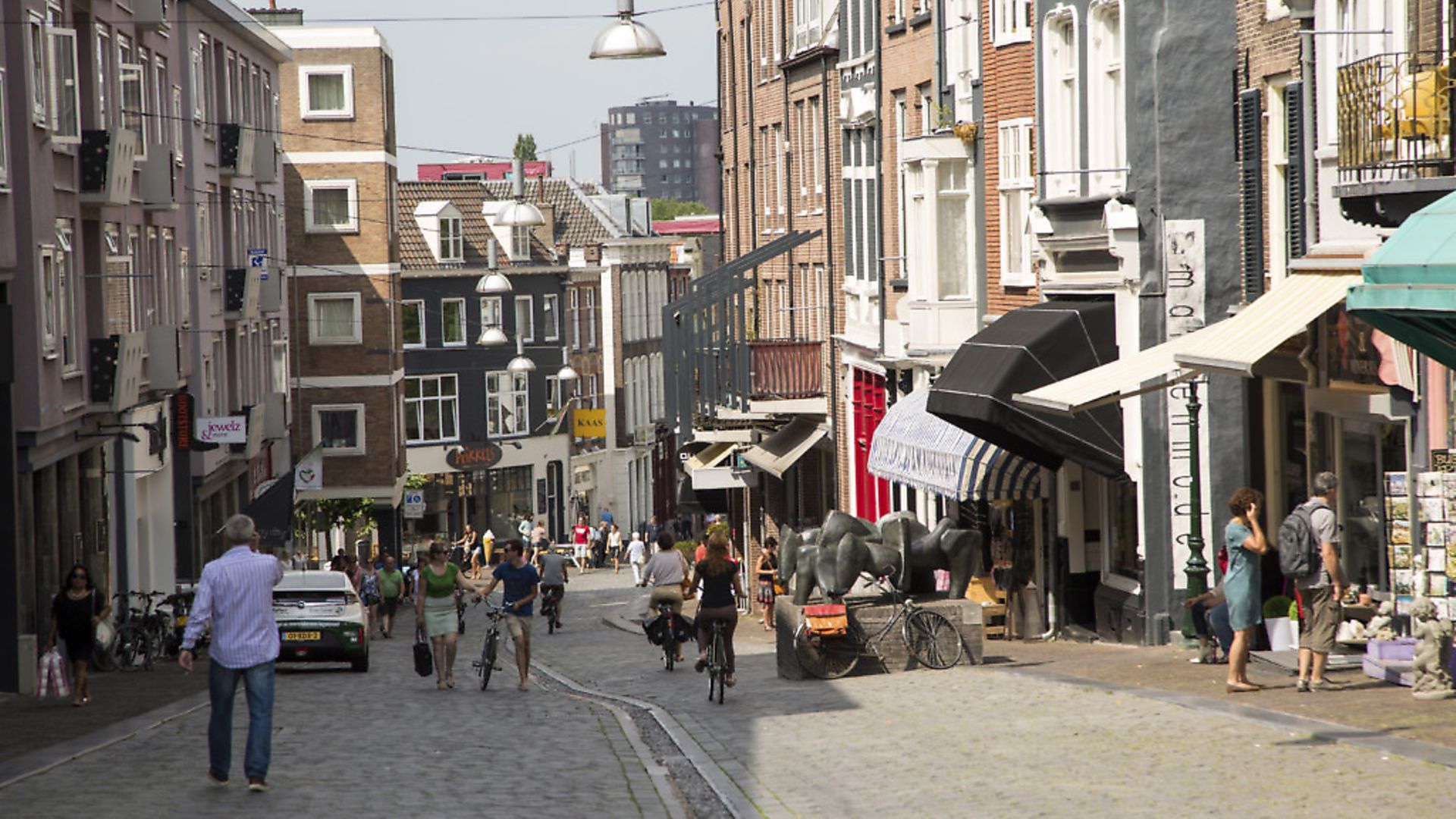
The multicultural man on our Dutch cousins
“DEZE TREIN WORDT GESPLITST” read a sign on the intercity service from Nijmegen to Utrecht, near where I sat with a trio of young people: a pair of Dutch siblings and an American I assumed was either a visiting friend, or an exchange student of some sort. The American was completing an online survey, presumably in order to join a dating site, since the question he was answering was: “How popular are you among the gender you’re attracted to?” One I don’t imagine could ever have been asked except via this medium, and in this day and age. The binary choice he was offered was between: “Popular”, and “OK, I guess”.
His thumb hovered over the screen for a while, before alighting on “OK, I guess” – and, overwhelmed by the pathos of this, I wanted to grab him by shoulders, look deep into his not unattractive eyes and brace him: ‘C’mon, kid, don’t sell yourself short…’ But the moment had already passed, and the Dutch siblings were addressing him regarding their own attractiveness – they were fair-skinned, freckled and ginger-haired: “Us redheads can be so ugly,” the boy said in English, “I wouldn’t fancy me if I was a girl.” Ignoring this, his sister – who clearly had rather better self-esteem – said: “But some girls with red hair can be really pretty…”
Is it reassuring to realise that the Dutch have the same sort of prejudices as the British? Hardly – and besides, we know this about them: that they’re a sort of no-funhouse-mirroring of the British national character, what with their studiously good manners, beautiful terraced houses, and rather bizarre sense of humour. Rich puritans – what a bummer! I remember queuing for the parking ticket machine at Schiphol Airport, and the copy of the Observer I had tucked under my arm falling to the floor, where – this being the late 1990s – its many and useless sections fanned out. The man behind me muttered a single word: “Zwaar”, which means ‘heavy’. So there you have it: for the Dutch, slapstick is a form of irony.
And if you happened to be Dutch, why wouldn’t you want to extend saying what is not – surely, the essence of irony – to the very physical reality of the Netherlands? After all, it’s one thing to be a nominatively-determined individual – like a self-aggrandizing Self, for example; but to be an entire landmass so cursed? That’s no fun at all.
The night before, a Nijmegen local had told me their pressing problem was not the waters threatening the seawalls, but inexorable rise of the River Waal, which is the raison d’etre of this, the oldest city in the Netherlands. (Nijmegen beat off competition from the equally senescent Maastricht.) Think of it: existing on a flattened buttock of a landmass, between two kinds of watery dissolution.
Known as ‘Havana on the Waal’, Nijmegen basks in its greeny-lefty image. Outside the station, pedestrian esplanades and cycle-choked boulevards stretch between roundabouts flocculent with greenery. Yet in between the giant boys and girls on their giant bikes, with their huge, round, cheesy-featured faces, came puttering ancient two-stroke mopeds, ridden by gilet-jaune-a-likes and spewing out dense clouds of lead and carbon particulates. Blimey! I thought to myself as I paced and spluttered, if the famously civic-minded Dutch can’t manage to restrict emissions, what help for us, their hooligan cousins?
Mind you, Nijmegen is a schiz’ sort of a town – the historic centre was first carpet-bombed by the Americans, and then, after the liberation, shelled for five full months by the retreating Wehrmacht. I wandered around its pedestrianised precincts for half an hour or so, admiring this Dutch version of a crap-cum-clone provincial British city. Brick-paved pedestrian precincts? Check. Labyrinthine shopping malls? Check. Profusions of shops selling slightly useless sub-luxury goods (scented candles, fancy stationery &c.)? Check. Street drinkers with faces browned by the sun and hands and feet covered in open sores? Check. Elderly shoppers wandering around in Gore-Tex gaggles? Check. And most home-from-homely of all: behind the till in the discount shop where I bought a bottle of mouthwash: a young woman wearing a hijab – because Britain and the Netherlands both are neoliberal economies dependent on cheap immigrant labour.
A far greater similarity than any accidental political boundaries, or cataclysmic natural ones. But the sign said it: “THIS TRAIN IS GOING TO SPLIT”. Once upon a time the Dutch gave us a king – but it’s worth recalling (if, indeed, you knew to begin with), that the ascendancy of the House of Orange involved the assassination of the then Grand Pensionary of the Dutch Republic, Johan de Witt, who besides being lynched by the mob, also had his liver ripped out and eaten. Following her own deposal by an angry mob led by a man with hair the colour of Cheese Straws, I expect Theresa May knows how De Witt felt.










